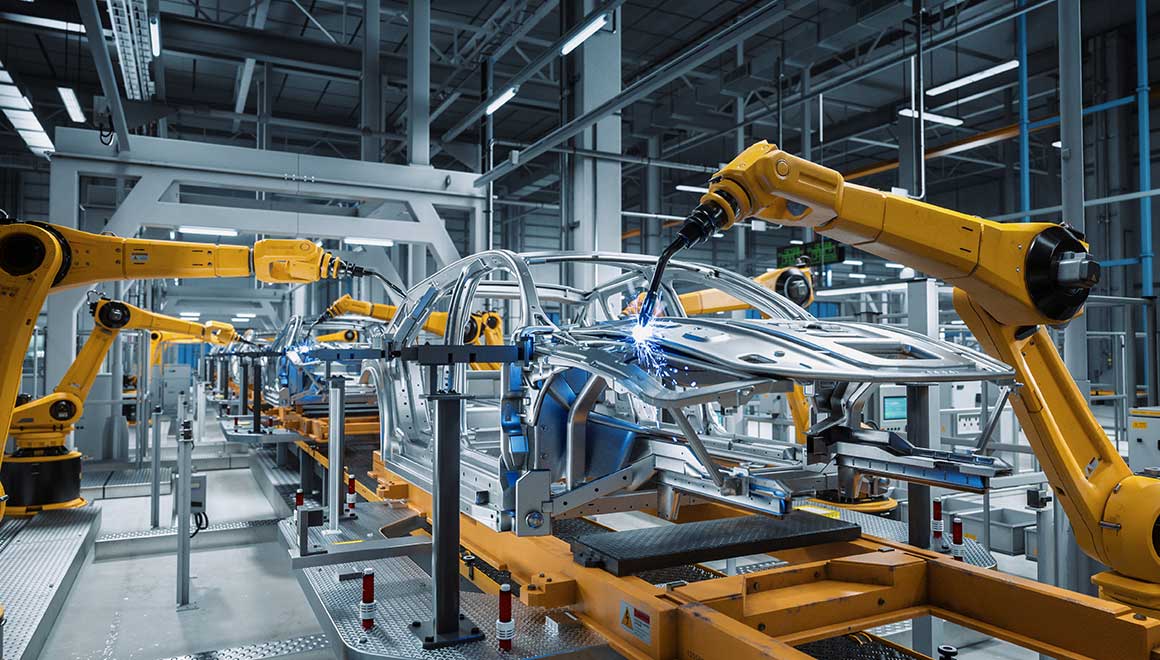Note: This article originally appeared on AssemblyMag.com, written by Jennifer Pierce
In April, we received a press release announcing that Xaba.ai, a Toronto-based company building synthetic brains for industrial robots, secured a $6 million seed extension led by Hitachi Ventures. This news prompted an ASSEMBLY Audible interview with the CEO of Xaba, Massimiliano Moruzzi, to learn more about the company’s mission and the platform that is rewriting the rules of industrial automation.
Comprised of a team of engineers who have worked with some of the biggest names in automotive and aerospace assembly, Xaba is on a mission to change automation from simple mechanization to a connected, intelligent ecosystem, enabling factory machines to self-program, self-optimize, and run without a single line of code.
“What if machines had an actual synthetic brain?” asks Moruzzi.
Moruzzi’s goal is to create machines that do more than just repeat motions on an assembly line, but machines that can reason, understand the environment and understand real-world data. That goal led to Xaba’s flagship product, xCognition.
Xaba’s AI platform xCognition eliminates the need for highly specialized, costly labor and can cut deployment time by up to 80 percent.
According to Moruzzi, industrial automation today remains highly inefficient, relying on outdated controllers, rigid programming, and extensive manual intervention. Programming and deploying industrial robots alone cost the industry $7 billion annually, with 80 percent of automation costs stemming from manually developing logic for industrial controllers.
Xaba’s Generative Industrial AI equips machines with cognitive intelligence, allowing them to autonomously adapt, optimize, and execute tasks with precision. At its core is xCognition, which acts as an open AI for industrial automation: fully automating industrial robotics and machine programming for any task while automatically generating both part programs and all the programmable logic controller (PLC) code required to bring any machine to life. In essence, this is automation driven by self-programming robots that can easily transition from text to action.
With Xaba, manufacturers can describe automation goals, key performance indicators, or operational tasks in human-readable text or functional specifications. From there, xCognition and PLCfy autonomously generate the required code, enabling robots and production lines to operate independently with real-time adaptability. The result is faster deployment, minimized downtime, and smarter, more resilient automation across industries through:
- Physics-informed machine learning model: Acting as a true digital twin, it accurately replicates real-world environments, adapting to different machines and motion platforms for precise, real-time optimization.
- Robotics and PLC code generation: Proprietary AI models autonomously generate both robotic programs and PLC code by understanding operational workflows and machine logic. This reduces deployment time by up to 80 percent and eliminates manual coding.
- Real-time process learning module: Powered by data ontology and graph neural networks (GNNs), this module captures, maps and understands complex relationships between machines, sensors and processes. It ensures dynamic adaptation and continuous optimization.
- Cognitive control framework: A universal AI platform that integrates seamlessly with any robotic system, CNC machine, or PLC controller, supporting both legacy and modern equipment.
“Industry 4.0 promised intelligent, autonomous factories—but it’s often been stuck in pilot purgatory, held back by rigid, code-heavy systems and legacy infrastructure,” says Gayathri Radhakrishnan, partner at Hitachi Ventures. “Xaba breaks that deadlock. By giving industrial machines the ability to self-learn and self-program through generative AI, Xaba is turning the vision of smart manufacturing into a scalable, reality today.”
Xaba’s AI is already transforming aerospace, automotive and high-precision manufacturing by eliminating costly rework and manual adjustments. In the automotive industry, for example, Xaba’s AI optimizes aluminum casting and forging, enabling robots to precisely machine castings while adjusting for machining tolerances—dramatically reducing assembly costs rework, and production time.
In large-scale robotic drilling applications, manufacturers have achieved 10 times faster production rates while significantly lowering capital expenditures. Unlike traditional systems requiring rigid programming and manual adjustments, Xaba’s AI allows robots to seamlessly reconfigure different parts and processes without costly downtime.
In robotic welding, Xaba’s AI automates MIG, TIG and laser welding, ensuring consistent, high-quality output across production lines while accelerating production timelines.
For large-scale 3D printing, Xaba’s xTrude system optimizes fused deposition modeling, preventing delamination, collapse and distortion. It allows manufacturers to fine-tune print parameters in real-time, improving reliability and reducing material waste.
Open AI for Industrial Automation
Xaba’s mission is to be an “Open AI for Industrial Automation,” a foundational AI system built specifically for automation. Unlike traditional AI, which relies mainly on prediction models, Xaba’s platform learns from real-world data—including video, sensor inputs, and material information—and incorporates physics-based understanding to produce production-ready machine control logic.
Like a human learning from experience, the system absorbs real-world input, maps it into a GNN, and uses that knowledge for advanced automation decision-making. This approach not only allows it to model the environment, but also to understand and interact with it, something most AI systems can’t do—especially in complex, dynamic settings like factories.
While large language models can generate text or solve simple problems, they can’t operate a machine or respond to real-world conditions. That’s why Xaba is considered a true foundational AI for automation, capable of enabling reasoning, adaptability, and scalability in physical systems.
For more information, visit xaba.ai.


